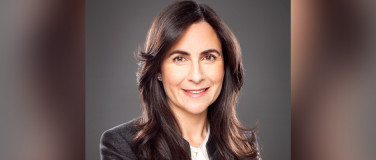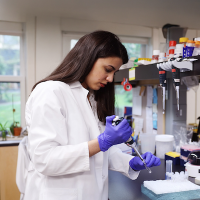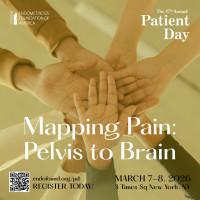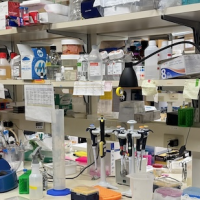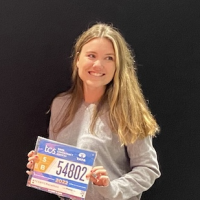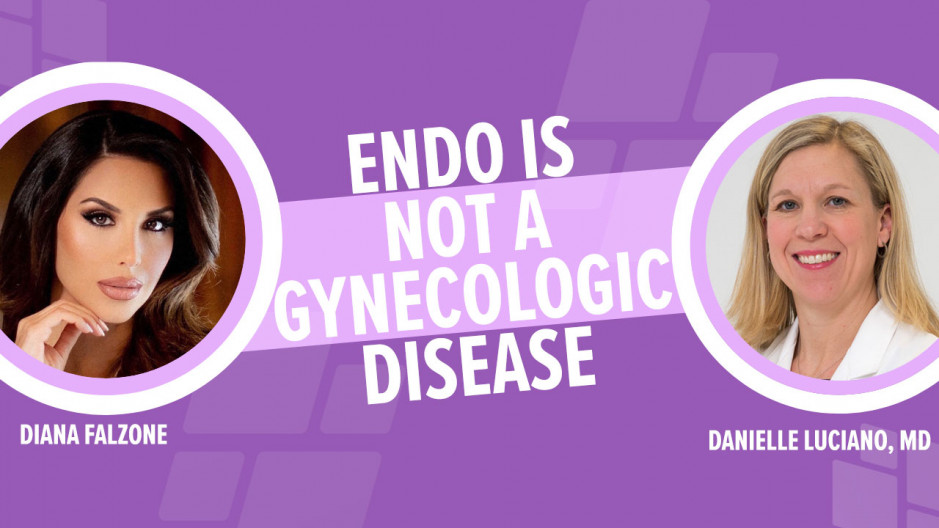
Endometriosis patients struggling with the disease need to “fill their bucket” with support, whether it comes from doctors, family members, support groups, or therapists, according to Dr. Danielle Luciano.
“Because endometriosis can empty your bucket real quick,” Luciano said. “Being able to keep that bucket full so that you can continue to function and do well is most important.”
Luciano is a minimally invasive gynecologic surgeon and associate professor of obstetrics and gynecology at UConn Health in Farmington, Connecticut. She recently spent nearly half an hour on EndoTV sharing her thoughts on more than a dozen endometriosis topics—including funding, recurrence of the disease, and its psychological toll—with journalist Diana Falzone.
Luciano kicked off the interview with good news from the Connecticut state legislature, which recently renewed funding for EndoRise’s biorepository and awareness initiatives. Luciano is the co-director of EndoRise, a partnership established in 2023 between UConn Health and the Jackson Laboratory “to create a pioneering endometriosis data and biorepository program to promote research regarding (1) early detection of endometriosis in adolescents and adults, and (2) the development of therapeutic strategies to improve clinical management of endometriosis.”
“It’s going to allow us to continue the work we’re doing to collect tissue and increase research in endometriosis, but it’s also going to increase our awareness programs and education programs,” Luciano said. “Most importantly, it just shows that we as an endometriosis community have made an impact in the state of Connecticut.”
Falzone wasted no time tapping into Luciano’s knowledge on specifics of the disease, including its complexities and the state of research.
“The research on endometriosis is definitely getting better every single day, and there are people all over the world that are working on it and trying to make it happen, but we still lack a basic understanding of what happens at the molecular and cellular level,” Luciano said. “We have to understand the basic physiology of this disease and stop focusing on it as a gynecologic-only disease. [We need to] focus on it as an inflammatory disease, a systemic disease that affects our entire body. Then, maybe we can find the answers.”
Falzone asked Luciano about recurring excision surgery—which some patients face due to the disease aggressively returning—and the shame that can come with it. Falzone noted that people who don’t understand endometriosis often question patients who have to have surgery again, suggesting that they may not have the symptoms they claim, have a poor diet, or need to lessen their stress.
“We have to stop that blaming all the way around,” Luciano said. “We need to stop blaming the patients for the symptoms they’re having. It is an inflammatory disease. Yes, stress makes it worse, but pain makes you stressed. Not sleeping makes you stressed. It’s not something that these patients have control over, and we really need to stop blaming people or thinking it’s something that’s easily fixable when we still don’t understand the basic physiology of it.”
Luciano also touched on inflammation, hormonal suppression, and comorbidity—the presence of two or more medical conditions or diseases at the same time.
“I say endometriosis runs around with her three close friends—painful bladder syndrome, irritable bowel syndrome, and then pelvic floor dysfunction. Those are probably the most common,” Luciano said. She went on to explain that adenomyosis—endometriosis in the muscle of the uterus—is another common one. “This is a really complicated disease because it’s not super-easy to diagnose by imaging, and it’s also not super-easy to treat, especially in patients who want to retain their fertility or retain their uterus because, really, the cure is to remove the uterus.”
Despite the many complexities and unknowns of endometriosis, Luciano encouraged patients to continue filling that bucket with support and “not to settle for not feeling good.”
“I think this idea that, ‘Maybe they’re right. Maybe I’m just not trying hard enough. Maybe I’m just not putting enough effort in. I think there was that time I had that piece of toast that wasn’t gluten-free.’ No, let’s not concentrate on that,” Luciano said. “Let’s concentrate on the fact that none of us are perfect and we don’t understand this disease, so let’s work together—scientists, doctors, patients. And if you get frustrated and you’re not getting the answers that you need, then get online and find a support group that helps you, or say to your doctor, ‘You’re not giving me the answers that I need. Who else should I talk to?’”



